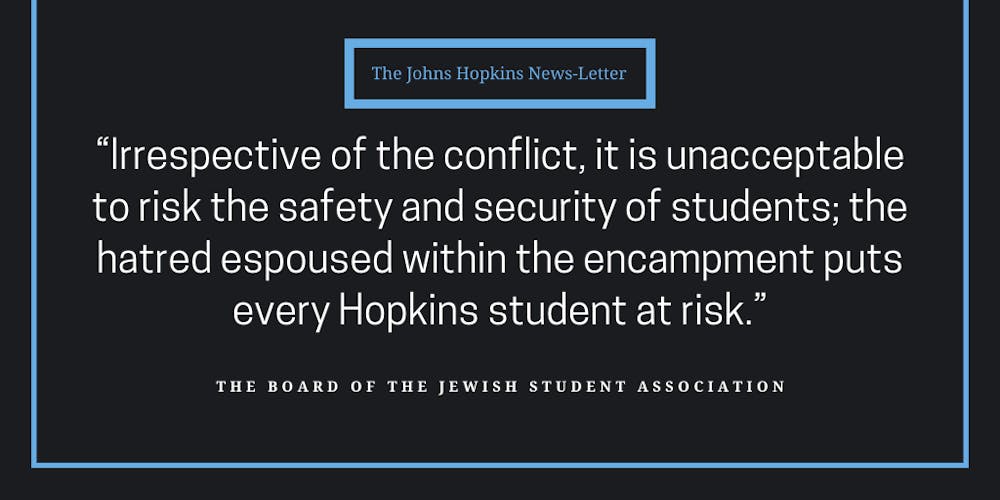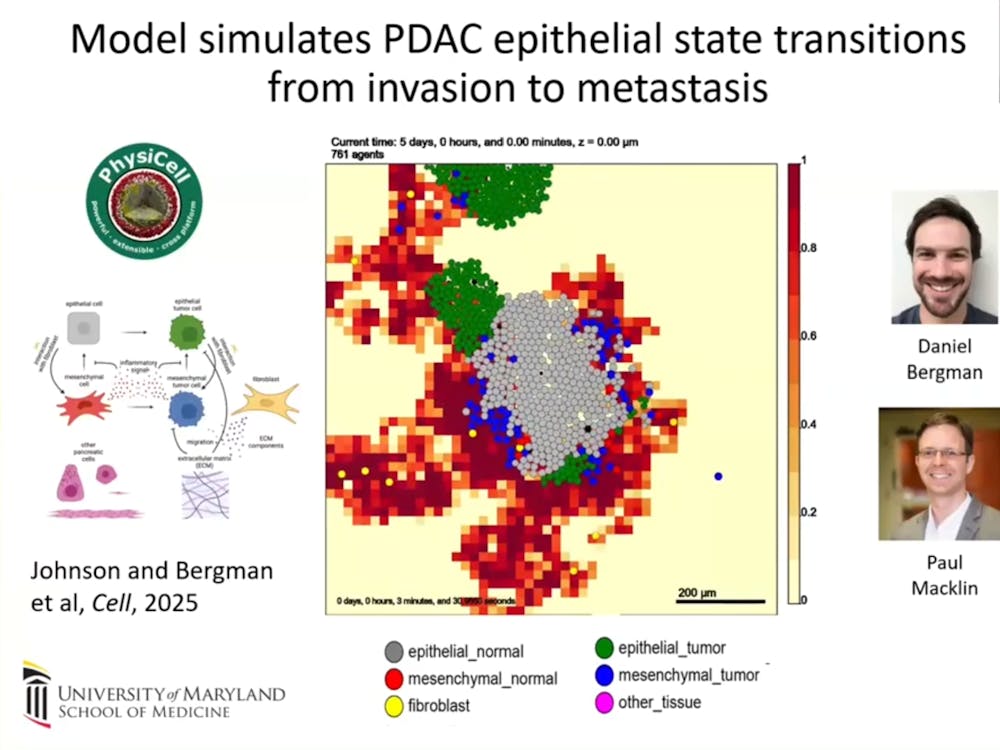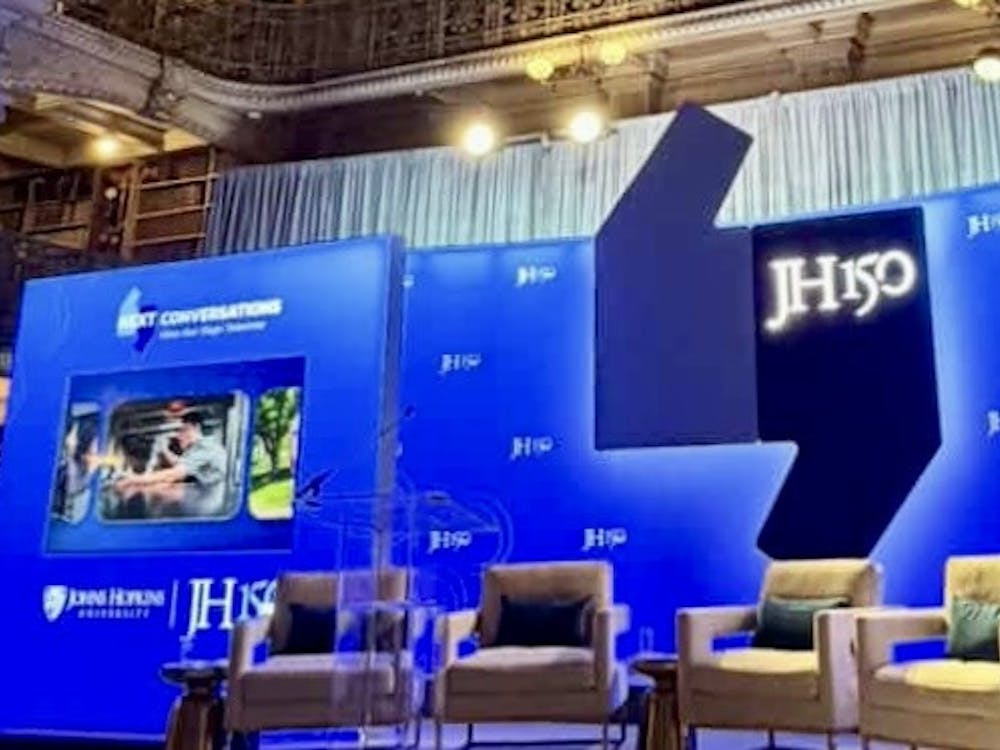Editor’s Note, 2024: This article was sent to The News-Letter for publication as an op-ed and completed the editing process prior to being posted elsewhere.
To the Members of the Johns Hopkins Community,
On Monday, April 29, the Beach became the site of a Palestine Solidarity Encampment, one of many on campuses across the nation. The encampment concerns many Hopkins students — the Jewish community included.
The horrific attacks against Israel on Oct. 7 impacted us directly, with members of our community losing friends and family members. In the months since, we have mourned the loss of civilian lives — Israeli and Palestinian. We recognize the disheartening and disturbing conditions in Gaza. At the same time, we stand firm against Hamas — a terrorist organization committed to the destruction of the Jewish people.
While the Hopkins Jewish community possesses a variety of opinions regarding the Israel-Hamas war, we are committed to promoting peace, security and healing for all affected by this tragic war. But irrespective of the conflict, it is unacceptable to risk the safety and security of students. The hatred espoused within the encampment puts every Hopkins student at risk.
Protesters — despite their stated desire to demilitarize both Gaza and Hopkins — call for violence against Jews. Some of these include:
- “There is only one solution: Intifada revolution.”
- “Resistance is justified when people are occupied.”
- “BPD, KKK, IDF, you’re all the same!”
- “From the river to the sea, Palestine will be free.”
- “Anytime somebody comes and tells you that in order for there to be justice in Palestine, that the illegal, racist settler colony of Israel needs to be wiped off the face of the earth, what are you going to say? [Crowd response:] ‘Smash Zionism.’ This is the task.”
- Written on a tent in the encampment: “Theirs [sic] no such thing as a peaceful protest.”
- On a sign at the encampment: “Zionism upholds Nazi ideology and white supremacy.”
- “Some people think that victory is a ceasefire: these are people who haven’t been paying attention because they’ve already shown that ‘ceasefire’ just means ‘pause’. We’re not here for a pause. Some people think that victory means peace, we think there’s no such thing as peace without justice. And we know you only get peace and justice in victory. It means that your enemies have been defeated; it means that your enemies have been squashed; it means your enemies have been checked.”
These are not calls for peace. These are not calls to improve the lives of Palestinian people. These are calls for violent attacks against all Jews: Jews in Israel, Jews in your classes, Jews in your community and Jews across the world.
These statements are antisemitic. We define Zionism as the right of the Jewish people to self-determination and statehood in our ancestral homeland. Denying this right is antisemitic. Denying our religious connections to the land is antisemitic. Calling for the destruction of the only Jewish state in the world “from the river to the sea” — home to 46% of the global Jewish population — is antisemitic. It is unacceptable for outside parties to assert that something is not offensive to our community.
While encampments tokenize minority anti-Zionist Jewish voices to justify their rhetoric and actions, national polling consistently shows broad Jewish support for the state of Israel, and the Jewish community at Hopkins is no exception. Israel is a critical part of our Jewish identities, and no student should be targeted based on their identity.
Calling the intifada — periods of intense violence, terrorist attacks and suicide bombings against Israeli civilians — “resistance” is sickening. Saying that all resistance, including the use of murder, rape and kidnapping, is “justified” is not representative of the values of the University, Judaism or the United States. Referencing the Nazi ideology of the Final Solution is blatantly antisemitic.
Yet, these statements are regularly proclaimed in front of a defaced Hopkins sign for all Jewish and non-Jewish students to hear by people hiding their identities. Many protesters may not know what they are chanting: the connotations, allusions and meanings behind phrases thrown out by a faceless leader. You may not know what you are saying, but the groups who created these chants did — and Jews do too. We encourage everyone, protester or not, to do their own research and critically evaluate what they are saying. Ignorance is not an excuse for hate; it is your responsibility to educate yourself.
For centuries, antisemitism has contained the consistent assertion that Jews are responsible for a culture’s greatest evil. In Christian Europe, we were falsely accused of being Christ-killers. In Nazi Germany, we were smeared as communist race-polluters. In the Soviet Union, we were besmirched as greedy, capitalist bourgeoisie. Now, encampments label us as “settler colonizers” and “Nazis” committing a “genocide.” These words pervade their rhetoric with ancient antisemitic tropes.
The violence hasn’t been limited to words; it has extended into the physical realm. Protesters have reportedly assaulted a member of the Jewish community — which the encampment dismissed as “baseless.” With their identity obscured and groupthink rationality, protestors suddenly lose accountability and act in ways that are completely unacceptable — here or on any other campus.
It is one thing to condemn antisemitism, but actions speak louder than words.
The encampment organizers brought protesters from the broader Baltimore community onto campus. We have repeatedly seen on other campuses non-student affiliates making encampments sites of violence and vitriol. The wide calls for non-affiliate participation and antisemitic rhetoric used by the protesters attracted hateful individuals to our campus, including one who waved a swastika on N. Charles Street on May 2.
It only takes one person with ill intentions for a student to get hurt. It only takes one person for consequences that can never be taken back.
It is a stressful time on campus. As the Board of the Jewish Student Association (JSA), we want to reiterate that all Jewish community members at Hopkins have a home at Hillel. We are here for you. We are a strong community and welcome every student: whether you come to JSA events every day or have never stepped foot in our doors.
Critical thought and intellectual humility are the only ways to break through dogmatism and ideological stubbornness. Escaping echo chambers and doing the hard work of analysis allows us to understand each other and this conflict far better than we ever could alone. We are inspired by President Ronald J. Daniels, who wrote on May 2, “But I believe the much harder work is to now move beyond the shouting, the slogans, the call and response, and to engage in a rigorous and open-minded way with the university community on the agenda for change that you propose.”
The Jewish community welcomes respectful dialogue as we work towards a better future for Israelis and Palestinians.
The Board of the Jewish Student Association.





